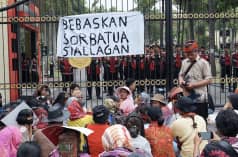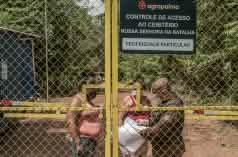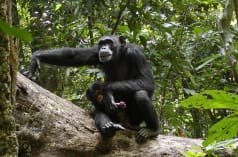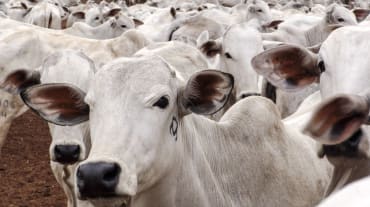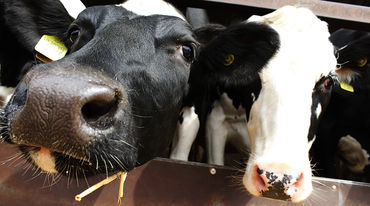EU-Mercosur free trade: fueling the (forest) fire
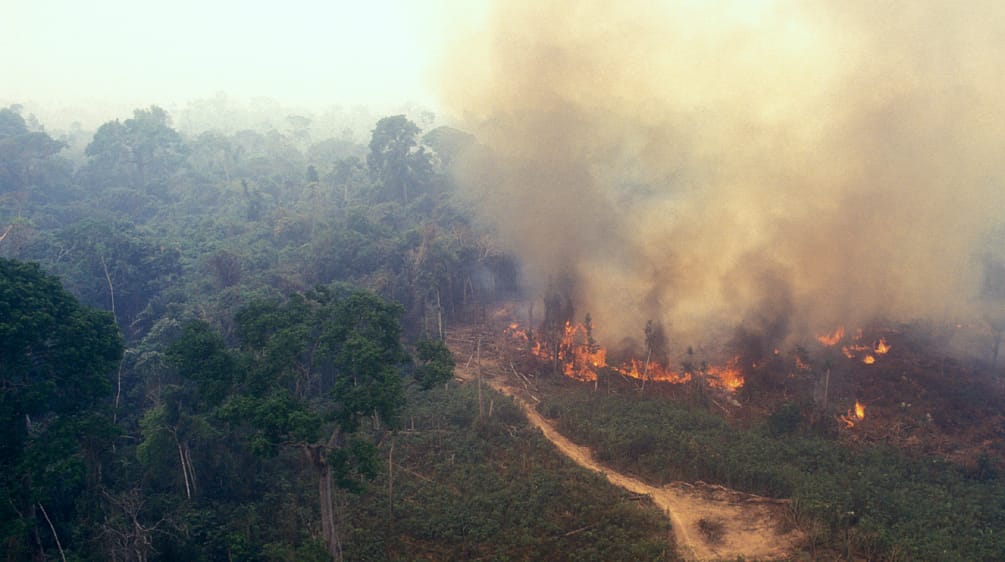 © Brasil2 / istockphoto.com
© Brasil2 / istockphoto.com
Sep 13, 2020
A free trade agreement between the EU and the countries of the South American Mercosur alliance is a threat to humans, nature and the climate. But it’s not too late to stop it, and keep beef, GM soy and ethanol from the Amazon rainforest out of Europe.
After 20 years of negotiations behind closed doors, the European Commission and the countries Argentina, Brazil, Paraguay and Uruguay agreed on a free trade and association agreement on June 26, 2019.
The agreement with the four countries of the South American Mercosur alliance is designed to create a common market of 780 million consumers, eliminating most of the previously imposed customs duties and restrictions.
Liberalized trade would allow Europe to sell more services, cars, machinery and chemicals – including pesticides that are banned in Europe – and South America to sell more agricultural products such as soy, beef, sugar, ethanol and mineral resources. Furthermore, the agreement would strengthen the patents and copyrights of European industry.
Assault on the rainforest
The European Commission has promised high standards to protect the climate, the environment and workers. However, Brazil’s government is currently making it absolutely clear that such agreements are not worth the paper they are printed on.
President Bolsonaro’s policies amount to genocide against indigenous peoples in rainforest areas, prompting several human rights organizations to bring proceedings against Bolsonaro before the International Criminal Court in The Hague.
In 2019, deforestation in the Brazilian Amazon climbed to the highest level in the past decade: According to Brazil’s National Institute for Space Research (INPE), chainsaws, bulldozers and deliberately set fires laid waste to 10,129 square kilometers of rainforest – an area six times the size of London.
The deforestation rate and the number of fires have continued to rise from month to month in 2020 as well. In the first half of August, almost 17,000 fires were counted in the Amazon.
The cattle industry is the engine driving deforestation in Brazil. 80 percent of cleared and torched land is used for livestock. Over 230 million head of cattle already graze there. At 2 million tons per year, Brazil is the world’s largest exporter of beef. At 614 million US dollars annually, the EU is currently the second biggest importer of Brazilian beef in terms of value after China.
Soy cultivation also has a devastating environmental and social impact. With 121 million tons in 2019, Brazil is the world’s biggest soy producer. This year, soy cultivation is set to grow by another seven percent. The genetically modified legume already occupies 36 million hectares of farmland – an area one and a half times the size of the UK. The Amazon rainforest, the biodiverse Cerrado savannah and the territories of indigenous people are all being devoured by the spread of endless industrial monocultures. With five million tons of soy a year, the EU is once again the second-largest importer of Brazilian soy after China.
Resistance of the EU countries to the free trade agreement
Before the agreements come into force, they must first be ratified by the EU Council of Ministers, the European Parliament and the parliaments of the 27 EU member states.
Some countries such as Italy, France, Austria, Luxembourg and Ireland have already expressed doubts about the EU-Mercosur agreement – not only for climate and environmental protection reasons, but also due to economic interests. The parliaments of the Netherlands, Austria and the Belgian region of Wallonia have already voted in advance to reject the agreement.
France has already announced its veto, prompted mainly by the resistance of European farmers’ associations to cheap agricultural imports from South America.
In late August 2020, German Chancellor Angela Merkel expressed “considerable doubts” about the implementation of the agreement “in its current form” in view of the increasing destruction of the Amazon rainforest and the many fires that had been started there.
The many negative voices do not shed a very favorable light on the work of the European Commission. The officials in Brussels appear to be guided by economic interests alone. Now the agreements are to be improved by spring 2021 by renegotiating their climate and environmental protection aspects.
Rainforest Rescue considers such remedial work to be a lost cause. A free trade agreement with Mercosur would accelerate the destruction of the Amazon and have a serious ecological impact on the region and the world. Neoliberal trade policies and the gospels of perpetual economic growth and unbridled consumerism are incompatible with environmental and climate protection.
The free trade agreement appears not to be a huge priority for the governments of the South American countries; they have kept silent over the past year. Various social and economic groups there are opposed to the agreement for many reasons.
Numerous environmental, development and indigenous organizations are calling for the rejection of the free trade agreement because of the environmental degradation, land grabbing and threat to the climate it would entail. Please add your voice to our petition Amazonia is burning: NO to free trade with arsonists!
Upcoming actions by the EU
- The 7,000-page agreement, which is still under wraps, is currently undergoing formal legal examination by the European Commission.
- Translations into the EU’s 23 official languages are to be sent to the governments of the EU member states by October 2020 at the earliest.
- The European Commission and the German government originally wanted to use Germany’s six-month EU Council presidency in the second half of 2020 to accelerate the agreement’s ratification process. The current timetable is unlikely to be realized, however, after Chancellor Angela Merkel expressed “considerable doubts” about the implementation of the agreement “in its current form” in August 2020. The German government announced that the negotiations on environmental and climate protection would continue until next spring following a legal review and the translation of the agreement.
- The free trade agreement will not come into force until both parts have been ratified by the European Parliament and the parliaments of all 27 EU member states.
